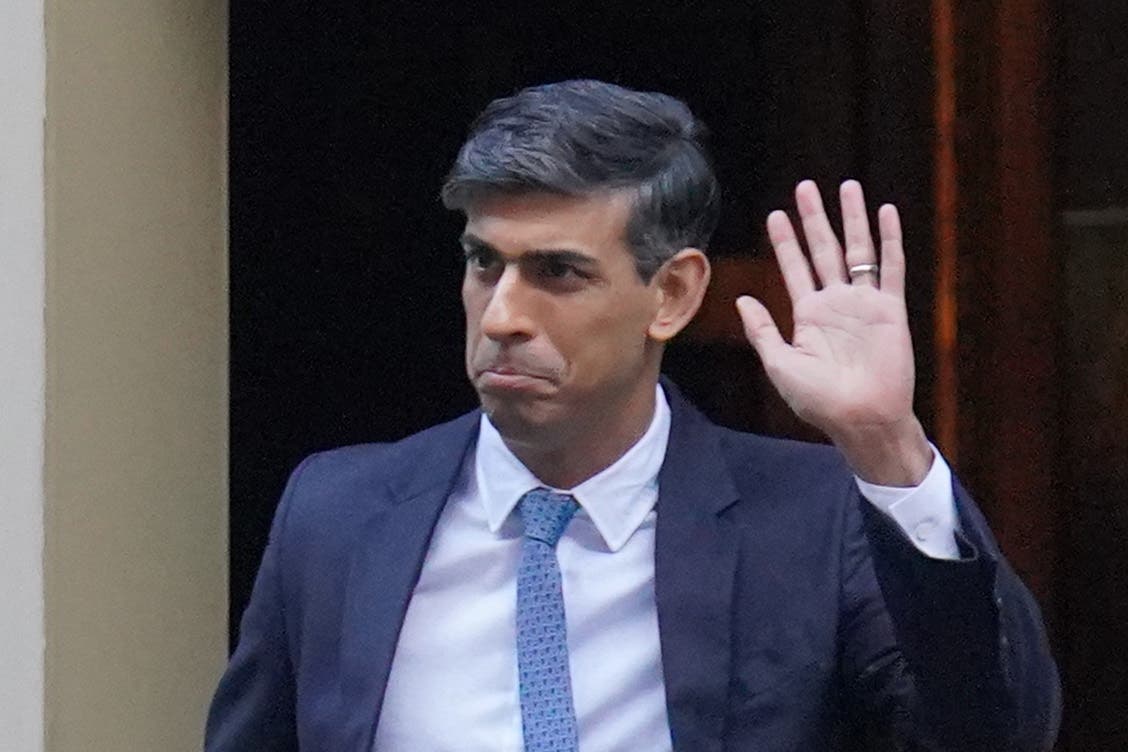Sunak’s Rwanda policy hit by fresh chaos as immigration minister Jenrick resigns
Robert Jenrick said new legislation to stop small boats ‘does not go far enough’.

Your support helps us to tell the story
From reproductive rights to climate change to Big Tech, The Independent is on the ground when the story is developing. Whether it's investigating the financials of Elon Musk's pro-Trump PAC or producing our latest documentary, 'The A Word', which shines a light on the American women fighting for reproductive rights, we know how important it is to parse out the facts from the messaging.
At such a critical moment in US history, we need reporters on the ground. Your donation allows us to keep sending journalists to speak to both sides of the story.
The Independent is trusted by Americans across the entire political spectrum. And unlike many other quality news outlets, we choose not to lock Americans out of our reporting and analysis with paywalls. We believe quality journalism should be available to everyone, paid for by those who can afford it.
Your support makes all the difference.Rishi Sunak was under fresh pressure over his Rwanda policy after his immigration minister resigned with a warning that new legislation to revive the strategy to stop small boats falls short.
Robert Jenrick told the Prime Minister on Wednesday that his draft Bill aimed at stopping small boat crossings “does not go far enough” and is a “triumph of hope over experience”.
Mr Sunak’s long-term political ally argued that he had to quit because he has “such strong disagreements” with his approach to immigration.
The draft Bill compels judges to treat Rwanda as a safe country after the Supreme Court ruled the scheme was unlawful over risks to refugees.
The legislation, which must be voted on by Parliament, gives ministers the powers to disregard sections of the Human Rights Act.
But it does not go as far as providing allowing them to dismiss the European Convention on Human Rights, as hardliners including sacked home secretary Suella Braverman have demanded.
Mrs Braverman’s allies made clear that the legislation is “fatally flawed”, indicating that she believes it will quickly lead the Tories into “electoral oblivion”.
Mr Sunak reportedly told Conservative backbenchers at the 1922 Committee shortly before Mr Jenrick quit that they must “unite or die”.
In his resignation letter, Mr Jenrick said he was “grateful” for Mr Sunak moving towards his position on the legislation, but added he does not “believe it provides us with the best possible chance of success”.
Mr Jenrick said they must do “whatever it takes” to stop Channel crossings, adding: “This emergency legislation is the last opportunity to prove this, but in its current drafting it does not go far enough.”
Mr Sunak wrote back to Mr Jenrick to tell him his resignation was “disappointing”.
“I fear that your departure is based on a fundamental misunderstanding of the situation,” he said. “If we were to oust the courts entirely, we would collapse the entire scheme.”
Home Secretary James Cleverly wrote on the front page of the legislation that he cannot guarantee that it is compatible with the European Convention on Human Rights.
The Bill says that “every decision-maker” – specifically mentioning the courts – “must conclusively treat the Republic of Rwanda as a safe country”.
It states that ministers will decide whether to ignore interim measures issued by the European Court of Human Rights which have previously scuppered flights.
Combined with the new legally binding treaty brokered with Rwanda, the Government hopes it can get the policy first announced in April last year off the ground.
The publication of the legislation came after Mrs Braverman warned the Tories face “electoral oblivion in a matter of months” if the legislation introduced is “destined to fail”.
The sacked home secretary, who commands support on the party’s right, said the Bill must contain powers to override the European Convention on Human Rights and “all other international law”.
But complying with her demands would have left Mr Sunak facing other possible ministerial resignations, an outcry from his MPs from the more centrist One Nation faction and an even rougher ride for the Bill through the House of Lords.
A source close to Mrs Braverman quickly made clear that the Bill “will be bogged down in the courts for months and months. And it won’t stop the boats”.
The One Nation grouping, however, cautiously welcomed that the draft legislation will “continue to meet the UK’s international commitments which uphold the rule of law”.